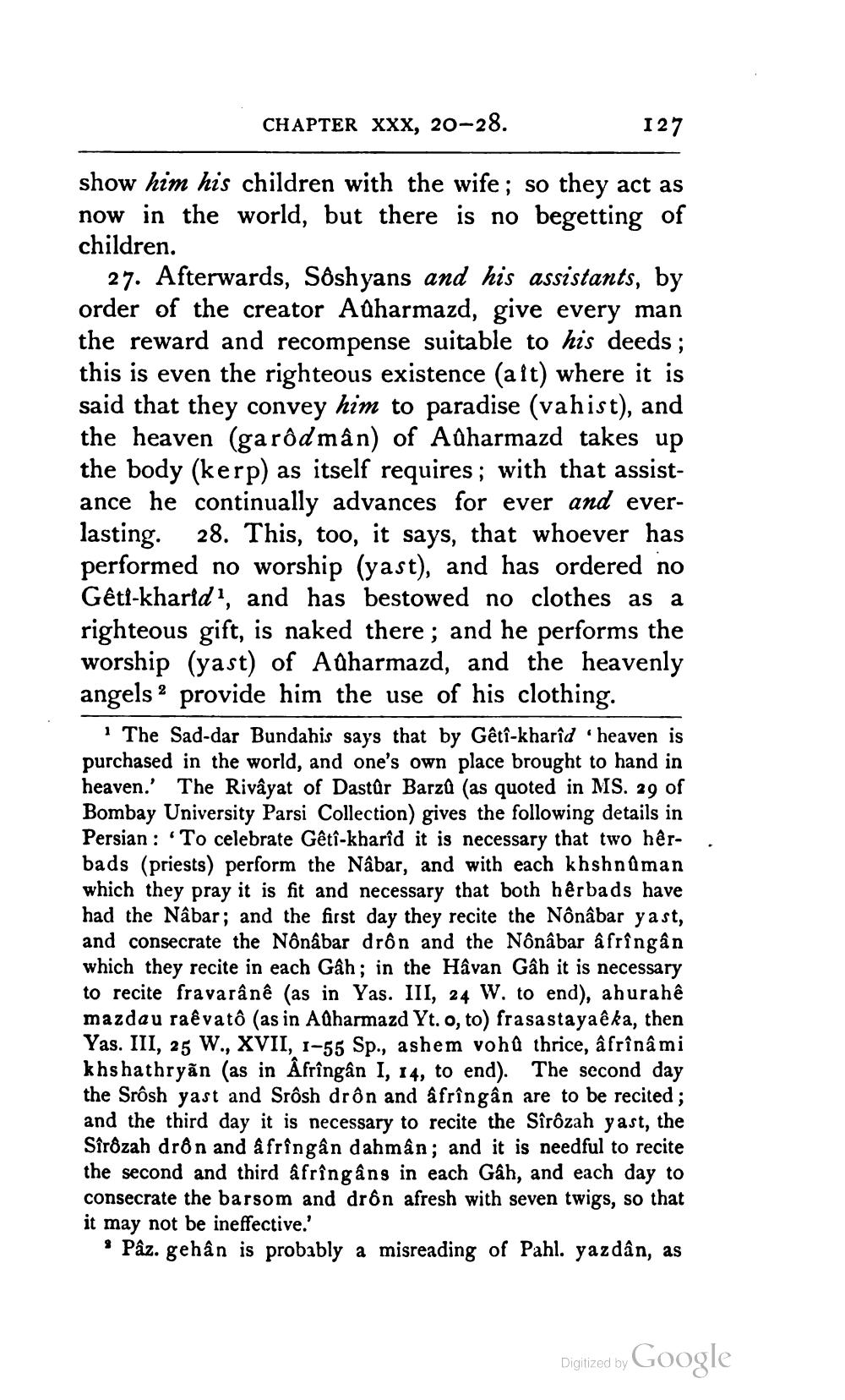________________
CHAPTER XXX, 20–28.
127
show him his children with the wife; so they act as now in the world, but there is no begetting of children.
27. Afterwards, Sôshyans and his assistants, by order of the creator Adharmazd, give every man the reward and recompense suitable to his deeds; this is even the righteous existence (ait) where it is said that they convey him to paradise (vahist), and the heaven (garôdmân) of Adharmazd takes up the body (kerp) as itself requires; with that assistance he continually advances for ever and everlasting. 28. This, too, it says, that whoever has performed no worship (yast), and has ordered no Gêti-kharid, and has bestowed no clothes as a righteous gift, is naked there; and he performs the worship (yast) of Adharmazd, and the heavenly angels 2 provide him the use of his clothing.
1 The Sad-dar Bundahis says that by Gêtî-kharid heaven is purchased in the world, and one's own place brought to hand in heaven.' The Rivâyat of Dastûr Barzů (as quoted in MS. 29 of Bombay University Parsi Collection) gives the following details in Persian: 'To celebrate Gêtî-kharîd it is necessary that two hêrbads (priests) perform the Nâbar, and with each khsh naman which they pray it is fit and necessary that both hêrbads have had the Nâbar; and the first day they recite the Nônâbar yast, and consecrate the Nônábar drôn and the Nônâbar âfrîngân which they recite in each Gâh; in the Hâvan Gâh it is necessary to recite fravarânê (as in Yas. III, 24 W. to end). ahurahê mazdau raêvatô (as in Adharmazd Yt. o, to) frasastayaêka, then Yas. III, 25 W., XVII, 1-55 Sp., ashem vohů thrice, âfrînâmi khshathryãn (as in Âfrîngân I, 14, to end). The second day the Srôsh yast and Srôsh drôn and afrîngân are to be recited; and the third day it is necessary to recite the Sîrôzah yast, the Sîrozah dron and a fringan dahmân; and it is needful to recite the second and third afrîngâns in each Gâh, and each day to consecrate the barsom and drôn afresh with seven twigs, so that it may not be ineffective.'
* Pâz. gehân is probably a misreading of Pahl. yazdân, as
Digitized by Google




